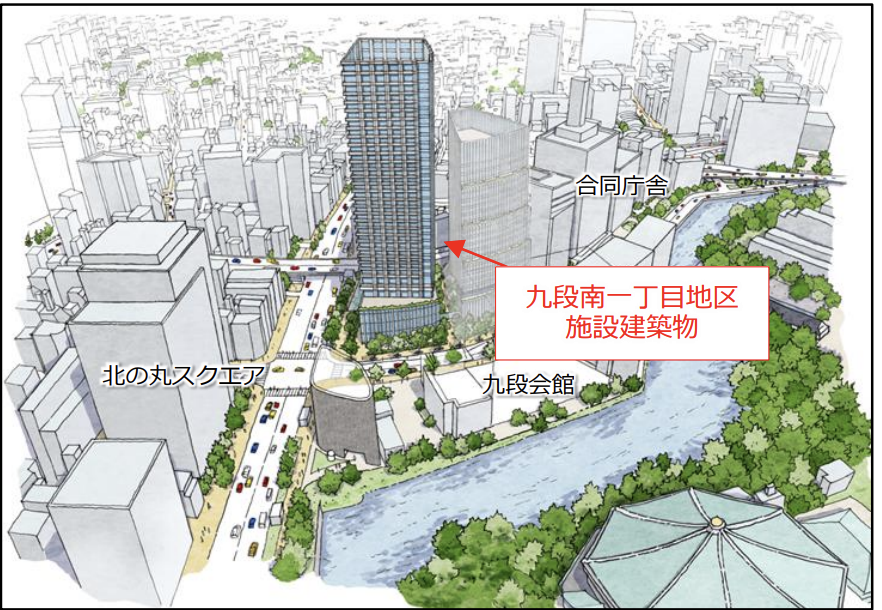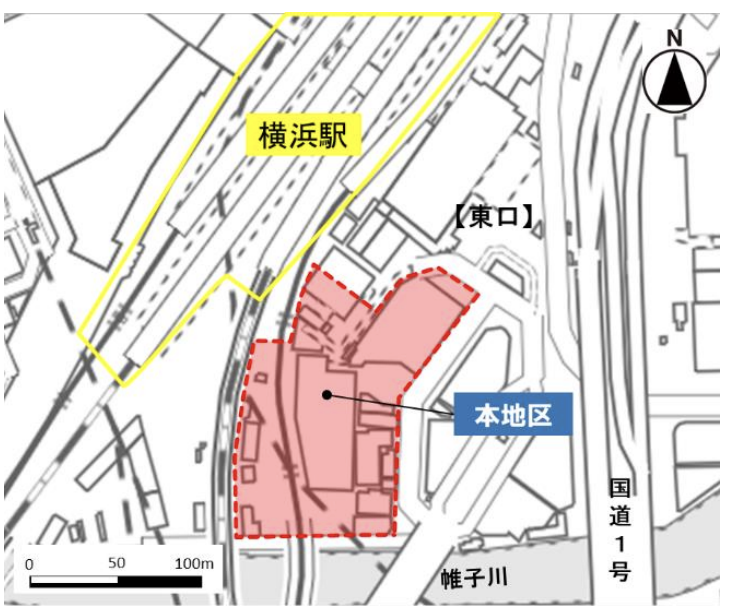When considering real estate investment, many people wonder if they can purchase properties at a discount if they are auction properties. It is true that auction properties can be purchased at a price 20-30% lower than the market price, and at first glance, they may appear to be an attractive investment target.
However, from our experience in handling many real estate investment projects at INA&Associates, real estate investment in auction properties involves risks that are unthinkable in normal real estate transactions. In fact, we have seen many cases in which investors have gotten involved in auction properties simply because they are cheap, and have ended up in unexpected trouble.
In this article, we will introduce the reasons why we do not recommend investing in real estate at auction properties, as well as examples of actual troubles that have occurred. We hope that through this information, you will be able to realize a safe and secure real estate investment.
What is an auction property?
In order to properly understand auction properties, we will first explain the basic structure.
Definition and Types of Auction Properties
An auction property is real estate that is forcibly sold by a court upon petition by a creditor when a debtor is unable to repay a mortgage or other loan. There are three main types of auctions.
Compulsory auctions are conducted when taxes are in arrears or a court order for payment is not complied with. The debtor's real estate may be seized and put up for auction even if it is not secured by a mortgage.
A secured property auction is a case in which real estate pledged as collateral for a mortgage or business loan is sold at auction due to default. This is the most common form of auction.
Formal auctions are auctions conducted to satisfy legal procedures in conjunction with the division of common property or the division of an estate. It differs from other types of auctions in that it is not intended to settle debts.
How to Confirm Information on Auction Properties
Information on auctioned properties is confirmed with documents known as the "three-piece set. The property description describes the rights and legal restrictions of the real estate, as well as the delivery conditions of the occupant. The Existing Condition Survey Report is the result of an on-site inspection by a magistrate and reports the use of the property, the presence or absence of occupants, and the structure and facilities of the building, with photographs. The valuation report is an evaluation of the market value by a court-appointed real estate appraiser and serves as the basis for calculating the standard sales price.
Current Status and Statistics of Auction Properties
Let's check the current status of the auction property market in numerical figures.
Auction Property Trends in 2024
The number of properties auctioned in 2024 totaled 11,415, an increase of 329 over the previous year. This is the first increase in 15 years since 2009. In 2009, after the collapse of Lehman Brothers, more than 60,000 properties were auctioned, but the number had been declining every year since then.
However, when limited to the Tokyo metropolitan area, the number of auctioned properties put up for periodic bidding has been decreasing, and the number of properties in the first half of 2024 has dropped to about half of what it was 10 years ago. This indicates that disparities exist by region.
Price Trends and Bidding Conditions
The average successful bids were 13.56 million yen in the Kanto region and 11.6 million yen in the Kinki region. On the other hand, the prices of auctioned properties are on a downward trend, and the number of bids is also decreasing.
What these data indicate is that the auction property market is by no means a stable investment environment. The number of properties fluctuates wildly, and it is difficult to predict prices.
Why we do not recommend real estate investment in auction properties
Based on our many years of experience in the real estate industry, we will explain the main reasons why we do not recommend real estate investment in auction properties.
Exemption from Liability for Contractual Nonconformity
The most important issue is that contractual nonconformity liability (formerly known as defect liability) does not apply to auction properties. In a normal real estate transaction, if a serious defect is found in the property, the seller can be claimed for repair costs even after the purchase.
However, in the case of an auction property, the court is not liable for any problems that may arise. If leaks or termite damage are discovered after purchase, or if seismic problems are found, the purchaser is entirely responsible.
Absence of professional support
Since no intermediary intervenes in an auction property, you must do everything yourself from the bidding procedure to the delivery of the property. In a normal real estate transaction, an intermediary will investigate the property, draw up a contract, and hand over the money on your behalf, but there is no such support for auction properties.
If you lack expertise in real estate transactions, you are more likely to get into unexpected trouble. In particular, the lack of professional support in legal procedures and confirmation of rights is a major risk.
High deposits and financing difficulties
A deposit equivalent to 20% of the standard sales price is required to bid on auction properties. For example, if the standard sales price of a property is 20 million yen, a deposit of 4 million yen must be paid in advance.
In addition, auction properties are difficult to obtain a loan. Financial institutions tend to judge auction properties as "being auctioned off due to some problem" and evaluate their value as collateral at a low level. Therefore, in many cases, you will be forced to purchase the property in a cash lump sum.
Restrictions on Property Surveys
In an auctioned property, if the debtor is residing in the property, you are not allowed to inspect the property. The condition of the property must be determined only by checking from outside the premises, and it is extremely difficult to discover hidden defects.
The inability to obtain important information such as structural problems of the building, equipment defects, and problems in the surrounding environment, which cannot be determined without actually checking inside, is a fatal constraint in making investment decisions.
Examples of Actual Troubles
The following are examples of problems that have actually occurred with auction properties. These cases specifically illustrate the risks of investing in auction properties.
Case 1: Unexpected renovation costs
An investor won an auction property for 15 million yen. From the outside, the 15-year-old condominium appeared to have no particular problems, but when the interior was checked after delivery, a series of serious problems were uncovered.
First, the plumbing in the bathroom and kitchen had been damaged due to aging, causing water leakage. In addition, the wiring of the electrical equipment was faulty and needed to be completely replaced due to safety concerns. Leaks from the roof were also discovered and required waterproofing.
Ultimately, the cost of these repairs exceeded 5 million yen, far exceeding the initial investment budget. The total of the property price and repair costs exceeded the market price of similar properties in the neighborhood, making it a complete failure as an investment.
Case 2: The problem of the previous owner sitting on the property
In another case, an investor who won a bid for a detached house at auction faced the problem of eviction of the previous owner. Three months after winning the bid, the former owner still had not moved out and was unable to start rental operations.
We attempted to negotiate, but the former owner continued to refuse to move out, citing such reasons as "I can't find a place to move to" and "I don't have the money to move. Finally, we decided to request an attorney to proceed with legal proceedings, and it took approximately 8 months until the enforcement was completed.
During this period, legal fees and enforcement costs amounted to approximately 800,000 yen, and we lost rental income for another eight months. According to the initial investment plan, the company planned to turn a profit in the first year, but in reality, the company continued to lose money until the second year.
Case 3: Taking over management fee arrears
In one case, an investor who won an auction for a condominium property ended up taking over the management fee arrears of the previous owner. After winning the bid, the management association demanded payment of 1.8 million yen in arrears of management fees and reserve for repairs for the past three years.
According to the management agreement, the new owner was obligated to take over the arrears, but this information could not be ascertained in advance. For privacy reasons, the management association does not disclose in advance the existence or amount of arrears.
This unexpected expense resulted in a significant deterioration of the investment balance, which was much lower than the originally planned yield.
Case 4: Discovery of Building Standard Law Violations
In one case, an investor who acquired an older detached property at auction was faced with the problem of building code violations. It was discovered that a portion of the property did not comply with the building code and could not be rented out as a rental.
Specifically, an extension of the property had not obtained a building permit and did not comply with the current Building Standard Law. In order to manage the property for rent, the illegal portion of the building had to be removed or made legal, at a cost of more than 3 million yen.
Furthermore, during the period of the legalization work, the property could not be advertised for rent, and the rental income could not be obtained as planned.
Case 5: Boundary issue and neighborhood trouble
There was a case in which a boundary problem occurred in an auctioned property of a detached house with land. The boundary with the neighboring land was unclear, and a dispute arose with the owner of the neighboring land regarding the extent of land use.
It turned out that the previous owner had used a part of the adjacent land without permission, and the adjacent land owner demanded the return of the land and compensation for damages. It took approximately one year to complete the boundary determination survey and legal procedures, during which time the property could not be effectively utilized.
Ultimately, we had to return a portion of the land to the neighboring landowner, which resulted in a smaller land area than we had originally envisioned. This limited the size of the building that could be constructed and necessitated a major revision of the investment plan.
Risk Analysis Chart for Auction Properties
The following table summarizes the risks of investing in auction properties.
| Risk Item | Probability of Occurrence | Degree of Impact | Difficulty of countermeasures | Remarks |
|---|---|---|---|---|
| Hidden defects | High | High | High | Difficult to discover in advance due to non-viewing |
| Previous owner sitting on the property | Medium | High | High | Legal proceedings may be required |
| Taking over of arrears | Medium | Medium | High | Difficult to confirm in advance |
| Violation of building code | Low | High | Medium | Can be partially addressed by prior investigation by specialists |
| Boundary problem | Low | Medium | Medium | Can be partially addressed through confirmation of survey drawings, etc. |
| Financing difficulties | High | Medium | Medium | Possible with prior consultation with financial institutions |
| High deposit | High | Low | Low | Can be addressed through financial planning |
As can be seen from this table, auction property investment involves many high-risk, high-impact factors, most of which are difficult to counter.
Alternatives for Safe Real Estate Investments
In addition to auction properties, there are many other profitable real estate investment opportunities.
Consider voluntary sale properties.
Voluntary sale properties are properties that are sold by agreement between the debtor and the creditor prior to an auction. Compared to properties sold at auction, the risk is greatly reduced because prior viewing is possible and negotiations can be conducted with the seller.
In many cases, the price is 10-20% lower than the market price, and although not as high as an auction property, there are sufficient investment merits.
Investment in renovation of old properties
An investment approach that involves purchasing an old property and renovating it is also effective. This is an investment method where risks can be easily controlled because the condition of the property can be fully confirmed in advance and renovation plans can be freely made.
High yields can be achieved through appropriate property selection and renovation planning.
Investing in Newly Built or Recently Constructed Properties
If stability is important, investing in newly built or recently constructed properties is also an option. The initial repair risk is low, and long-term rental management can be stable.
Yields are not as high as those of auction properties, but you can realize a stable investment with less risk.
Conclusion
We have examined real estate investment in auction properties from various angles. It is true that auction properties may be purchased at a lower price than the market price, but the risks involved are not something that we would recommend to novice investors.
Of particular importance is the fact that all risks are transferred to the purchaser due to the exemption from liability for contractual non-conformity. Without specialized knowledge and extensive experience, it is difficult to make appropriate risk judgments.
INA&Associates, Inc. offers the best real estate investment plan according to your investment goals and risk tolerance. In addition to auction properties, there are many other investment opportunities that offer both profitability and safety.
If you are considering investing in real estate, please contact us for a consultation. We will support your asset building with our wealth of experience and expertise.
Frequently Asked Questions
Q1: Is it really possible to purchase properties at auction at a discount?
A1: It is true that you may be able to purchase a property at a price 20-30% lower than the market price. However, when hidden defects, repair costs, and various procedural costs are taken into account, the final investment cost is often the same as or higher than the market price.
Q2: Can I get a mortgage on an auction property?
A2: Although it is possible under the system, financial institutions are reluctant to finance foreclosed properties. The collateral value tends to be assessed lower, and loan conditions are more stringent. In addition, the loan process must be completed within a short period of time (approximately one month from bidding to payment), so in many cases, you will actually be forced to purchase the property in cash.
Q3: Where can I find information on auction properties?
A3: You can check the information on the real estate auction property information website (BIT) operated by the court. It is possible to download a "three-part set" of the property description, current condition investigation report, and evaluation report to check the details. Please note, however, that there are numerous risks that cannot be determined based on this information alone.
Q4: Aren't there some investors who have had success with auction properties?
A4: Certainly there are investors who have had success with auction properties. However, such people have a wealth of experience and expertise, and they manage their risks well. It is not realistic for beginners to expect similar results.
Q5: Are there any other ways to purchase properties at a discount besides auction properties?
A5: There are other opportunities to purchase a property at a lower price than the market price, such as voluntary sales, renovations of old properties, or properties that are in a hurry to sell. These methods allow for sufficient research in advance and greatly reduce risk.

Daisuke Inazawa
Representative Director of INA&Associates Inc. Based in Osaka, Tokyo, and Kanagawa, he is engaged in real estate sales, leasing, and management. He provides services based on his extensive experience in the real estate industry. Based on the philosophy that “human resources are a company's most important asset,” he places great importance on human resource development. He continues to take on the challenge of creating sustainable corporate value.

.png)













